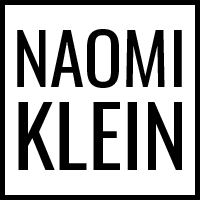Were the DC and Seattle Protests Unfocused?
July 10th, 2001By Naomi Klein "This conference is not like other conferences." That's what all the speakers at "Re-Imagining Politics and Society" were told before we arrived at New York's Riverside Church. When we addressed the delegates (there were about 1,000, over three days in May), we were to try to solve a very specific problem: the lack of "unity of vision and strategy" guiding the movement against global corporatism. This was a very serious problem, we were advised. The young activists who went to Seattle to shut down the World Trade Organization and to Washington, DC, to protest the World Bank and the IMF had been getting hammered in the press as tree-wearing, lamb-costumed, drumbeating bubble brains. Our mission, according to the conference organizers at the Foundation for Ethics and Meaning, was to whip that chaos on the streets into some kind of structured, media-friendly shape. This wasn't just another talk shop. We were going to "give birth to a unified movement for holistic social, economic and political change." As I slipped in and out of lecture rooms, soaking up vision galore from Arianna Huffington, Michael Lerner, David Korten and Cornel West, I was struck by the futility of...

